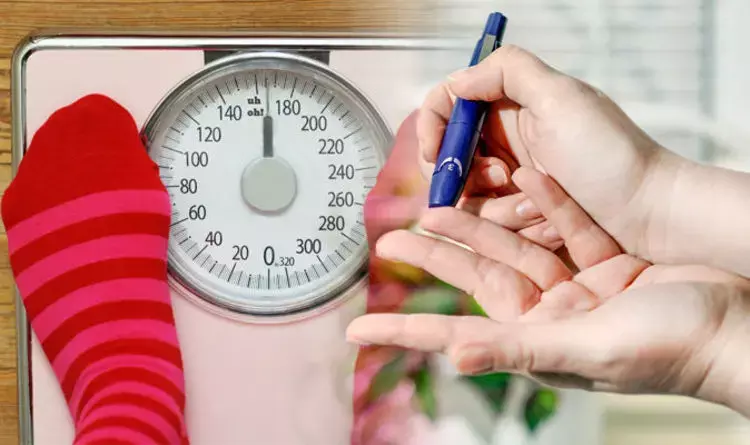- Home
- Medical news & Guidelines
- Anesthesiology
- Cardiology and CTVS
- Critical Care
- Dentistry
- Dermatology
- Diabetes and Endocrinology
- ENT
- Gastroenterology
- Medicine
- Nephrology
- Neurology
- Obstretics-Gynaecology
- Oncology
- Ophthalmology
- Orthopaedics
- Pediatrics-Neonatology
- Psychiatry
- Pulmonology
- Radiology
- Surgery
- Urology
- Laboratory Medicine
- Diet
- Nursing
- Paramedical
- Physiotherapy
- Health news
- Fact Check
- Bone Health Fact Check
- Brain Health Fact Check
- Cancer Related Fact Check
- Child Care Fact Check
- Dental and oral health fact check
- Diabetes and metabolic health fact check
- Diet and Nutrition Fact Check
- Eye and ENT Care Fact Check
- Fitness fact check
- Gut health fact check
- Heart health fact check
- Kidney health fact check
- Medical education fact check
- Men's health fact check
- Respiratory fact check
- Skin and hair care fact check
- Vaccine and Immunization fact check
- Women's health fact check
- AYUSH
- State News
- Andaman and Nicobar Islands
- Andhra Pradesh
- Arunachal Pradesh
- Assam
- Bihar
- Chandigarh
- Chattisgarh
- Dadra and Nagar Haveli
- Daman and Diu
- Delhi
- Goa
- Gujarat
- Haryana
- Himachal Pradesh
- Jammu & Kashmir
- Jharkhand
- Karnataka
- Kerala
- Ladakh
- Lakshadweep
- Madhya Pradesh
- Maharashtra
- Manipur
- Meghalaya
- Mizoram
- Nagaland
- Odisha
- Puducherry
- Punjab
- Rajasthan
- Sikkim
- Tamil Nadu
- Telangana
- Tripura
- Uttar Pradesh
- Uttrakhand
- West Bengal
- Medical Education
- Industry
Short term strict low carbohydrate diet tied to diabetes remission: Study

Type 2 diabetes is the most common metabolic disorder globally. Besides other measures diet is recognised as an essential part of treatment of diabetes. However uncertainty remains about which diet to choose and previous studies have reported mixed results.
Researchers have found in a new study that patients with type 2 diabetes who follow a strict low carbohydrate diet for six months may experience greater rates of remission compared with other recommended diets without adverse effects. Further trials are needed to determine longer term effects according to researchers. The study has been published by The BMJ today.
Low-carbohydrate diets have been advocated as an effective measure for promoting weight loss in overweight and obese individuals and preventing and treating type 2 diabetes. In the instant study, low carbohydrate diets were defined as less than 26% daily calories from carbohydrates and Very Low carbohydrate diets were defined as less than 10% daily calories from carbohydrates for at least 12 weeks in adults (average age 47 to 67 years) with type 2 diabetes.
The researchers acknowledge that most benefits diminished at 12 months, but say doctors might consider short term strict low carbohydrate diets for managing type 2 diabetes, while actively monitoring and adjusting diabetes medication as needed.
To address this evidence gap, a team of international researchers set out to assess the effectiveness and safety of low carbohydrate diets (LCDs) and very low carbohydrate diets (VLCDs) for people with type 2 diabetes, compared with (mostly low fat) control diets.
Their findings are based on analysis of published and unpublished data from 23 randomised trials involving 1,357 participants.
Outcomes were reported at six and 12 months and included remission of diabetes i.e reduced blood sugar levels with or without the use of diabetes medication, weight loss, adverse events and health related quality of life.
Although the trials were designed differently, and were of varying quality, the researchers were able to allow for this in their analysis.
Based on low to moderate certainty evidence, the researchers found that patients on LCDs achieved higher diabetes remission rates at six months compared with patients on control diets, without adverse events.
For example, based on moderate certainty evidence from 8 trials with 264 participants, those following a LCD experienced, on average, a 32% absolute risk reduction (28 fewer cases per 100 followed) in diabetes remission at 6 months.
LCDs also increased weight loss, reduced medication use, and improved body fat (triglyceride) concentrations at six months.
However, most of these benefits diminished at 12 months, a finding consistent with previous reviews, and some evidence showed worsening of quality of life and cholesterol levels at 12 months.
This study used robust methods to increase the precision and overall certainty of the effect estimates. But the authors acknowledge some limitations, such as the ongoing debate around what constitutes remission of diabetes, and uncertainty over the longer term effectiveness and safety of LCDs.
They also stress that their results are based on moderate to low certainty evidence.
As such, they suggest clinicians "might consider short term LCDs for management of type 2 diabetes, while actively monitoring and adjusting diabetes medication as needed."
"Future long term, well designed, calorie controlled randomised trials are needed to determine the effects of LCD on sustained weight loss and remission of diabetes, as well as cardiovascular mortality and major morbidity," they conclude.
Journal: The BMJ
For further reference log on to:
https://www.bmj.com/content/
Dr Kamal Kant Kohli-MBBS, DTCD- a chest specialist with more than 30 years of practice and a flair for writing clinical articles, Dr Kamal Kant Kohli joined Medical Dialogues as a Chief Editor of Medical News. Besides writing articles, as an editor, he proofreads and verifies all the medical content published on Medical Dialogues including those coming from journals, studies,medical conferences,guidelines etc. Email: drkohli@medicaldialogues.in. Contact no. 011-43720751


